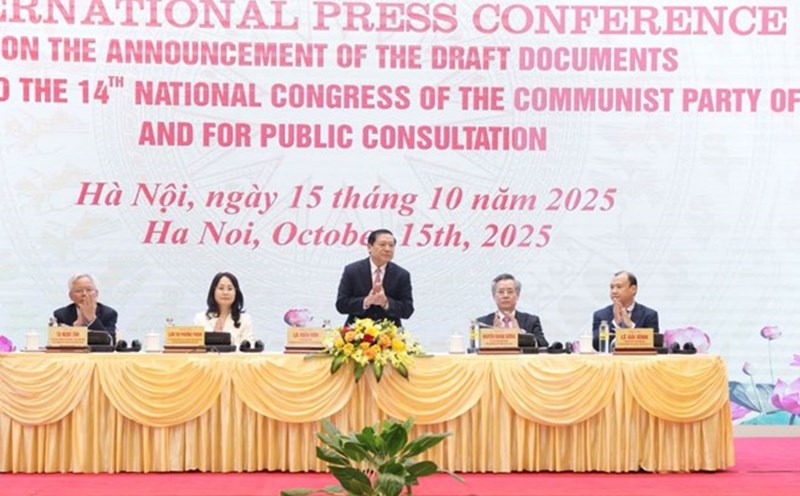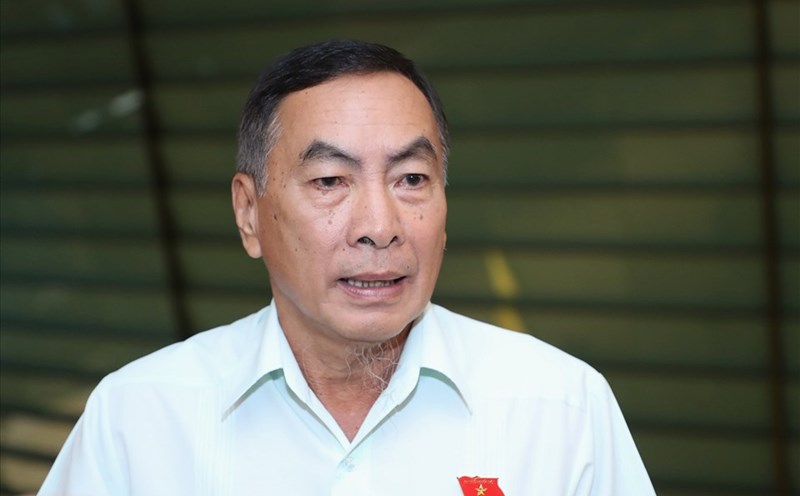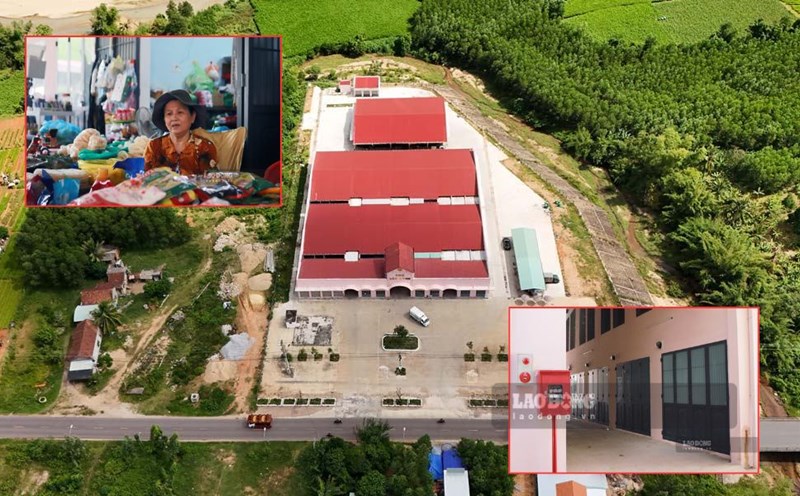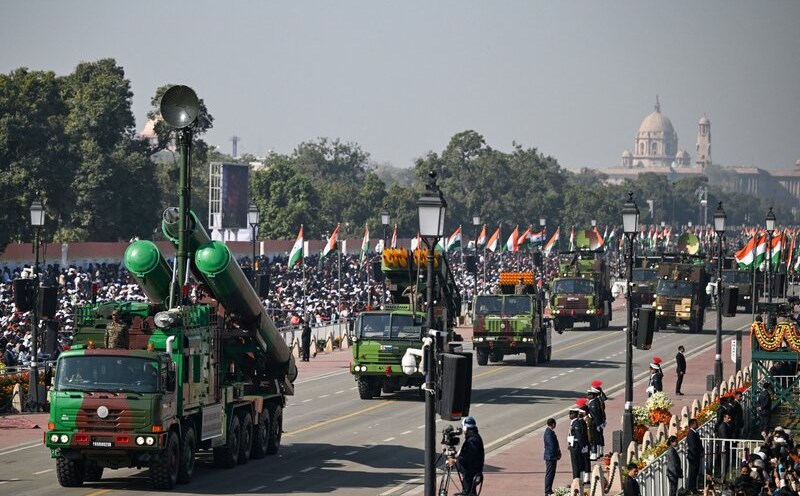The policy is correct but the problem lies in the way the organization is implemented
From September 1 to November 30, 2025, Hanoi will implement a 90-day campaign to clean up and enrich land data. However, in some localities, the implementation still has rigid approaches, as Lao Dong Newspaper recorded, some communes and wards in Hanoi have issued a notice that if not paid on time, "all benefits will not be resolved".
Speaking with Lao Dong Newspaper reporter on the sidelines of the National Assembly, National Assembly delegate Nguyen Thi Viet Nga - Deputy Head of the National Assembly Delegation of Hai Phong City - said that first of all, it is necessary to affirm that the 9-day and night campaign to clean up and enrich land data in 2025 is a correct and necessary policy, with special significance in the national digital transformation process, towards building a unified, transparent land database and serving people better. This is an important preparation step to operate the National Land Database, one of the six basic databases of the Digital Government.
However, the problem lies in the way it is organized in some localities. When the government requires people to submit a photocopy of the Land Use Rights Certificate (red book) - that is, a copy of a document that the State agency has issued and is storing, it not only causes trouble and takes time, but also shows the deviation in the approach to digital transformation.
"The nature of digital transformation is that data must be shared, connected and reused internally within the State management system, not "transfer the burden of procedures from this agency to the people".
When people have to print, photo, and authenticate documents that the State is already capable of tracing, the spirit of "taking the people as the center" of administrative reform and digital transformation has not been properly implemented," said National Assembly delegate Nguyen Thi Viet Nga.

Do not let people become "the ones to clean up personal data" for the State
According to the Deputy Head of the National Assembly Delegation of Hai Phong City, in principle, the government is the place to hold and manage all original land records, including paper data and electronic data.
If the data is not synchronous, the right solution is not to require people to re- resell it, but to review, standardize and connect available data sources between sectors, from natural resources, environment, justice, police, tax to banking.
Mobilizing people to provide information should only be applied in cases where data is really lacking or there are signs of incorrection that need to be verified.
According to National Assembly delegate Nguyen Thi Viet Nga, in the current context, the Government has clearly directed that all "data cleaning" activities must be associated with the application of technology, ensuring safety, security and not causing inconvenience to people.
Therefore, if any locality still applies manual measures and administratively manages technical tasks, it needs to be reviewed and adjusted promptly to ensure compliance with the direction and goals of the campaign.
"From a broader perspective, the campaign to "clean and enrich land data" is not only a technical task, but also a test of the data governance capacity of the public authority system.
A modern system cannot operate based on paper photos, but must be based on synchronous, accurate electronic data that can be shared between agencies.
When data is "cleaned" in the true sense, people will not need to carry a thick file when completing procedures; and state agencies also significantly reduce costs, human resources and errors", said delegate Nguyen Thi Viet Nga.
To achieve the campaign's real goals, National Assembly delegate Nguyen Thi Viet Nga said that any arising requirements need to be carefully considered, avoiding creating additional administrative procedures contrary to the spirit of reform and digital transformation.
"So, after 90 days, we not only have a "cleaner" land database, but more importantly, a more digital, efficient and people-friendly administrative apparatus," said delegate Nguyen Thi Viet Nga.
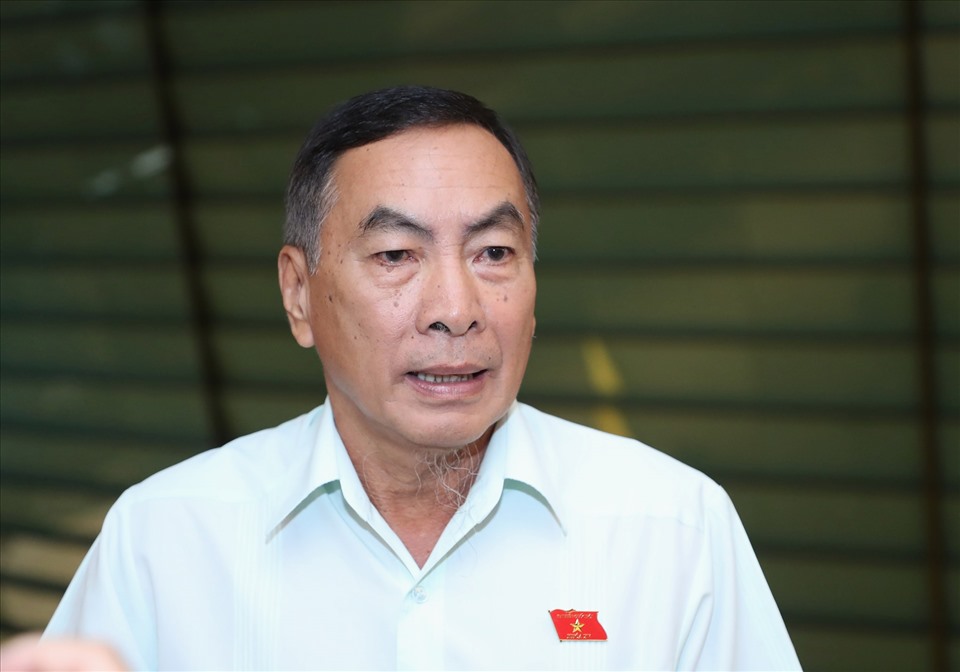
Sharing the same view, National Assembly delegate Pham Van Hoa - Member of the National Assembly's Law Committee - said that currently, the land sector has been managed more strictly than before, but there are still many shortcomings, especially the fact that land data has not been standardized. However, requiring people to submit photo books to communes and wards is something that needs to be carefully considered.
"I don't understand why people have to be required to photocopy red books, while the State management agency has full archived records. Doing so not only causes trouble and loss of work for people, but commune and ward officials only need to review information from available data to get it. Land management agencies need to study and review this policy. Because taking a red book for photos can lead to the risk of losing or losing documents," said delegate Pham Van Hoa.




